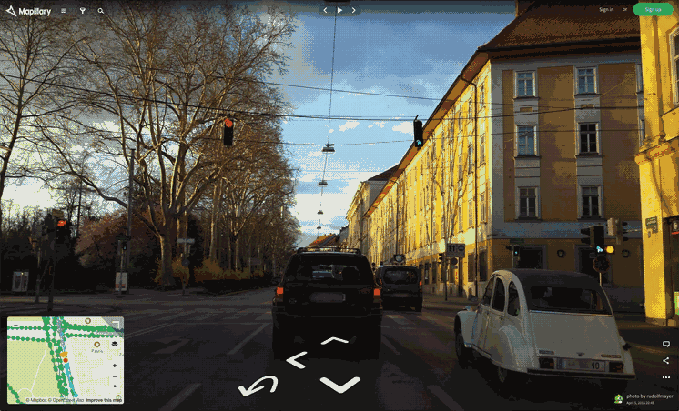Mapping Startups Hope They Can Chart a New Course to Success
Mapillary is one such company looking to challenge the big players in mapping. Using images collected by users through crowdsourcing, the company is aiming to provide new mapping solutions for the entire world. By focusing on deep image analysis, the company seeks to accurately identify places and objects in the images. This process, known as “semantic segmentation”, helps the company deliver more accurate mapping data.
The business model of Mapillary is based on selling mapping data derived from user-collected images. This model resembles the business model of CityMaps, which was recently sold for an undisclosed amount. However, Mapillary also has another side tied to the autonomous vehicle experiment. The company is working with the University of California, Berkeley, on the DeepDrive initiative.
Mapillary believes the data collected by the company gives it a different perspective compared to Google’s data. According to Jan Erik Solem, CEO of Mapillary, “Every system you train is going to be biased based on the inputs. The output is directly correlated to the input. You can train a system in the U.S., but it’s not going to be the same in the rest of the world. If you don’t have tuk-tuks in your training sets on the streets in Michigan, you’re not going to detect a tuk-tuk on a street in India.”

Last week, German company HERE launched its first product in partnership with its owners – European automakers, BMW, Daimler, and Volkswagen. According to a report from Reuters, the three German automakers will share data to provide information on traffic conditions ranging from accidents or traffic stops to poor road construction, and even street-side parking. This information will come from input data from thousands of live traffic feeds from cameras integrated into the cars’ display and navigation systems. This move is an indication of why so many companies were fighting over HERE’s navigation technologies when Nokia carved it out and sold it to the three automakers for $3.1 billion last year.

In the U.S., competition for HERE’s data services is at an earlier stage… more in the vein of Mapillary than the German behemoth. CivilMaps, backed by Ford, raised $6.6 million to pursue similar technology. Meanwhile, competitors like Google are not taking the challenge of new functionality from a group of startups at face value (or their latest valuations). In the case of Google, this means the acquisition of Urban Engines earlier this month. “There are certain situations that [the AI] can’t handle because they haven’t built that into the machine from the start. To build that in, they have to have training.” Solem said. That’s why local data is so important and may represent the next trail blazed on the road to full autonomous vehicles.